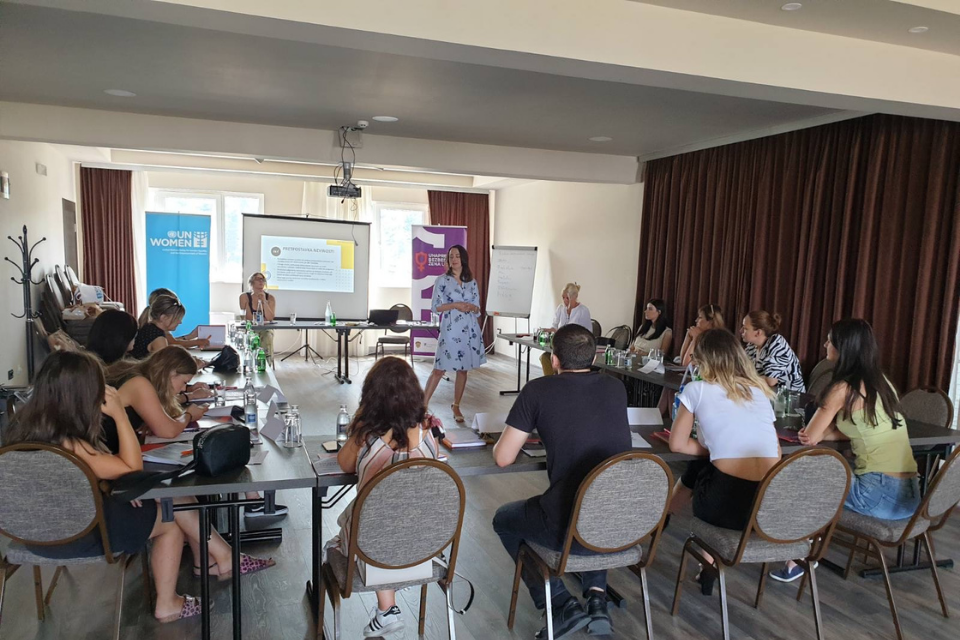Allying with the media to combat violence against women
Date:

Different forms of violence against women have become more visible in the Serbian media, still, there are many flaws, professional and ethical that are seen in these reports, as a recent UN Women study in Serbia suggests. In order to improve the quality of reporting and raise awareness of the importance of ethical journalistic approach to these issues, UN Women in Serbia organized a series of trainings for journalists throughout the country within the Norwegian-funded project "Improved safety of women in Serbia“.
“Instead of making a sensationalist story about a specific case and "hitting the emotions" of their audience, journalists should write about the social context in which violence happens, it’s causes and consequences, and above all - possible solutions,” said Danica Djokic, journalist of the web portal Cenzolovka reflecting on the knowledge gained at UN Women-organized trainings this summer on ethical media reporting on violence against women and girls.
She added that journalists’ duty is to find relevant interlocutors, professionals, and use photographs that in no way retraumatize women who have gone through or are going through violence.
Danica is one of the 50 participants who took part in the trainings which aimed to improve the knowledge and skills of media workers on gender-based violence. Journalists were introduced to laws on the prevention of gender-based violence, terms of sexual trauma, and know-how in approaching women victims of violence. Participants also claim that analyzing the examples of good and bad practices in media reporting was very useful. The baseline for the trainings was media analysis, “Bad as usual, in unusual times” conducted by UN Women and BeFem, a feminist organization from Belgrade, that mapped out media practices and assessed the overall quality of reporting on violence against women and girls on social media, during lockdown caused by the COVID-19 pandemic.
The analysis showed that media outlets in Serbia tend to report on violence against women and femicide in a sensationalist and tabloid manner, perpetuating gender stereotypes, revealing the details of the victim’s private life and the case, without respecting the dignity and privacy of the victim. The causes can be the lack of knowledge, time, editorial policies, and understanding of the importance of ethical reporting.
Marija Popovic, psychotherapist and one of the trainers, said that reporting on this and similar topics that can cause discomfort, fear, or even the urge to protect or change something, and can be very challenging for journalists as it puts them in a difficult position to obtain objectivity. “Therefore, structured trainings, like this one, should be a precondition for all journalists dealing with these topics, “ Marija explains.
According to Tijana Milosevic from UN Women in Serbia, the quality of reporting in Serbia varies and ranges from stereotypes to entertainment, without condemnation of violence, with fewer cases of critical reporting contributing to raising awareness and empowering women to defend themselves against violence. “That is why UN Women will continue to be strongly committed to improving journalistic knowledge and skills, in order to achieve a higher level of professionalism in reporting about gender-based violence”, she concluded.